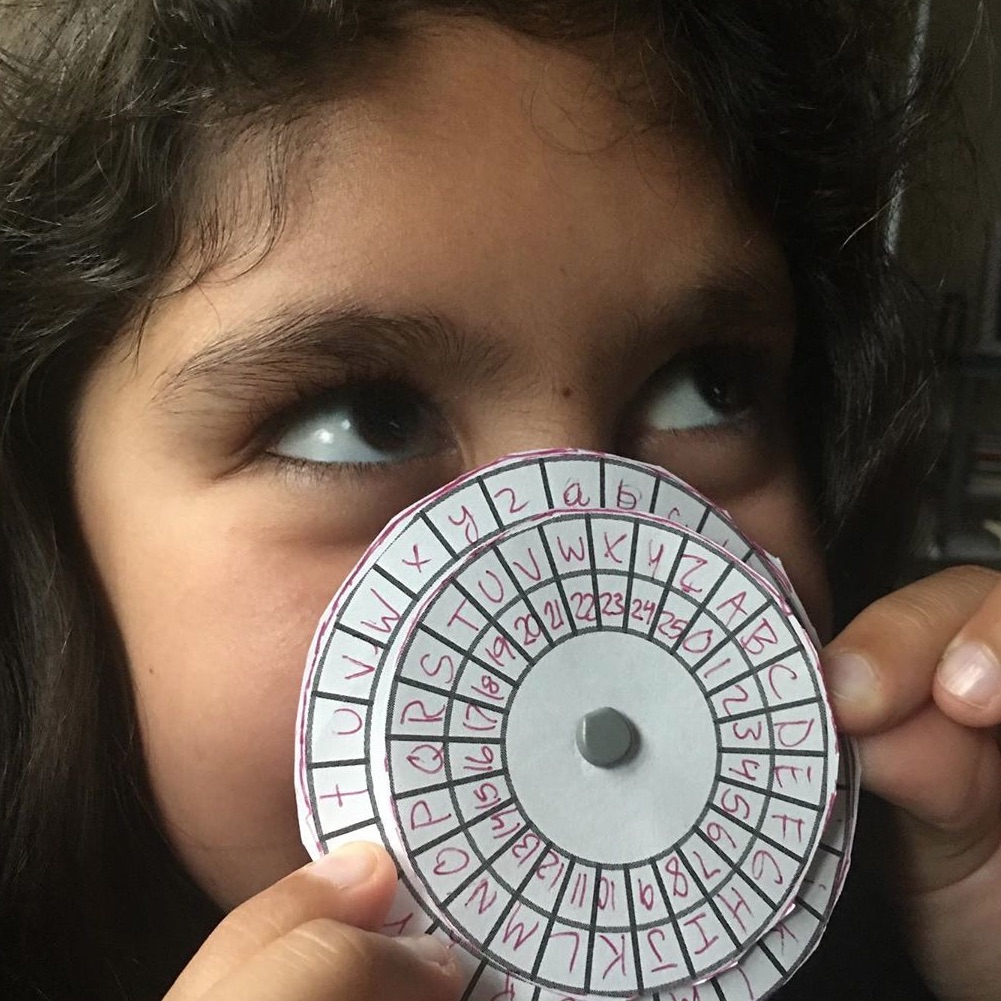Division of Science, Mathematics, and Computing News by Date
Results 1-4 of 4
September 2020
09-22-2020
The Bard Math Circle’s Creative and Analytical Math Program (CAMP) and its founder, professor Japheth Wood, have been recognized with a 2020 Epsilon Award for Young Scholars Programs. The Epsilon Awards, given annually by the American Mathematical Society, support some of the most prestigious summer math enrichment programs in the United States.
CAMP is not “summer camp.” It is a nonresidential academic program for middle school students that features mathematics in a creative learning environment. CAMP started in August 2014 with initial funding from the Dolciani Math Enrichment Grant Program, and it has grown to become a popular late-summer treat for math kids in the Mid-Hudson Valley and beyond. Experienced educators and undergraduate math majors lead classes and activities that emphasize hands-on math, teamwork, and outside-the-box thinking.
This summer, CAMP was held online for the first time. During the first week in August, 49 middle schoolers and a staff of 15—including seven Bard math and computer science majors and two Bard math alumnae—got together via Zoom. “Since cyberspace shortened the distance between us, the Bard Math Circle received numerous applications from around the country,” says Wood. “We could see students’ excitement over running into old friends and connecting with new CAMPers in Zoom classrooms.”
This year’s CAMP theme was cryptography. Students explored cipher encryption (using a cipher wheel like the one at right), created artworks with encoded messages, made cryptograms, and more.
“Though [CAMP] wasn’t around during my student days at Bard, an amazing community has developed since,” says Bard alumna and CAMP senior instructor Erin Toliver ’00. “I love seeing the look on a student’s face when they’ve discovered a new pattern, found a different perspective, or made a new connection for a deeper understanding of this glorious world of mathematics.”
Learn more about the CAMP program at bardmathcircle.org.
CAMP is not “summer camp.” It is a nonresidential academic program for middle school students that features mathematics in a creative learning environment. CAMP started in August 2014 with initial funding from the Dolciani Math Enrichment Grant Program, and it has grown to become a popular late-summer treat for math kids in the Mid-Hudson Valley and beyond. Experienced educators and undergraduate math majors lead classes and activities that emphasize hands-on math, teamwork, and outside-the-box thinking.
This summer, CAMP was held online for the first time. During the first week in August, 49 middle schoolers and a staff of 15—including seven Bard math and computer science majors and two Bard math alumnae—got together via Zoom. “Since cyberspace shortened the distance between us, the Bard Math Circle received numerous applications from around the country,” says Wood. “We could see students’ excitement over running into old friends and connecting with new CAMPers in Zoom classrooms.”

This year’s CAMP theme was cryptography. Students explored cipher encryption (using a cipher wheel like the one at right), created artworks with encoded messages, made cryptograms, and more.
“Though [CAMP] wasn’t around during my student days at Bard, an amazing community has developed since,” says Bard alumna and CAMP senior instructor Erin Toliver ’00. “I love seeing the look on a student’s face when they’ve discovered a new pattern, found a different perspective, or made a new connection for a deeper understanding of this glorious world of mathematics.”
Learn more about the CAMP program at bardmathcircle.org.
Photo: Math students from across the country attended CAMP 2020 via Zoom.
Meta: Type(s): Faculty | Subject(s): Computer Science,Division of Science, Math, and Computing,Mathematics Program | Institutes(s): Bard Undergraduate Programs |
Meta: Type(s): Faculty | Subject(s): Computer Science,Division of Science, Math, and Computing,Mathematics Program | Institutes(s): Bard Undergraduate Programs |
09-22-2020
“As the climate warms, it is critical to understand how temperature changes will affect the transmission of mosquito-borne diseases,” says Shocket, who was a postdoctoral fellow at Stanford University at the time the study was carried out, and is now a postdoctoral researcher at the University of California, Los Angeles.
Photo: Lead author, Bard alumna Marta Shocket ’09. Photo courtesy the author
Meta: Type(s): Alumni | Subject(s): Biology Program,Division of Science, Math, and Computing | Institutes(s): Bard Undergraduate Programs |
Meta: Type(s): Alumni | Subject(s): Biology Program,Division of Science, Math, and Computing | Institutes(s): Bard Undergraduate Programs |
09-22-2020
“Often the best reservoirs for the pathogens that can jump to humans are smaller-bodied species, like rats and mice and certain kinds of bats,” Keesing says. “When we have intact natural systems with high biodiversity, these species are kept in check, but when humans destroy habitat, the large predators and herbivores disappear first. Which means the smaller-bodied species are the big winners. They proliferate wildly, they live at super high density and are the ones far more likely to make us sick.”
Photo: Still from the BBC documentary “Extinction: The Facts” with Bard biologist Felicia Keesing
Meta: Type(s): Faculty | Subject(s): Biology Program,Division of Science, Math, and Computing | Institutes(s): Bard Undergraduate Programs |
Meta: Type(s): Faculty | Subject(s): Biology Program,Division of Science, Math, and Computing | Institutes(s): Bard Undergraduate Programs |
09-02-2020
“Penguins seem to know what mathematicians learned long ago: The densest packing of shapes on a plane is a hexagonal grid,” writes D’Agostino, in The Atlantic. “Huddles typically last a few hours, during which the penguins may cycle through multiple rotations from the huddle’s cold exterior to its warm interior. In the process, each individual prioritizes his own warmth, yet the huddle’s heat is shared by all.”
Photo: Lars Lehnert / 500px / Getty
Meta: Type(s): Alumni,Article | Subject(s): Division of Science, Math, and Computing |
Meta: Type(s): Alumni,Article | Subject(s): Division of Science, Math, and Computing |
Results 1-4 of 4